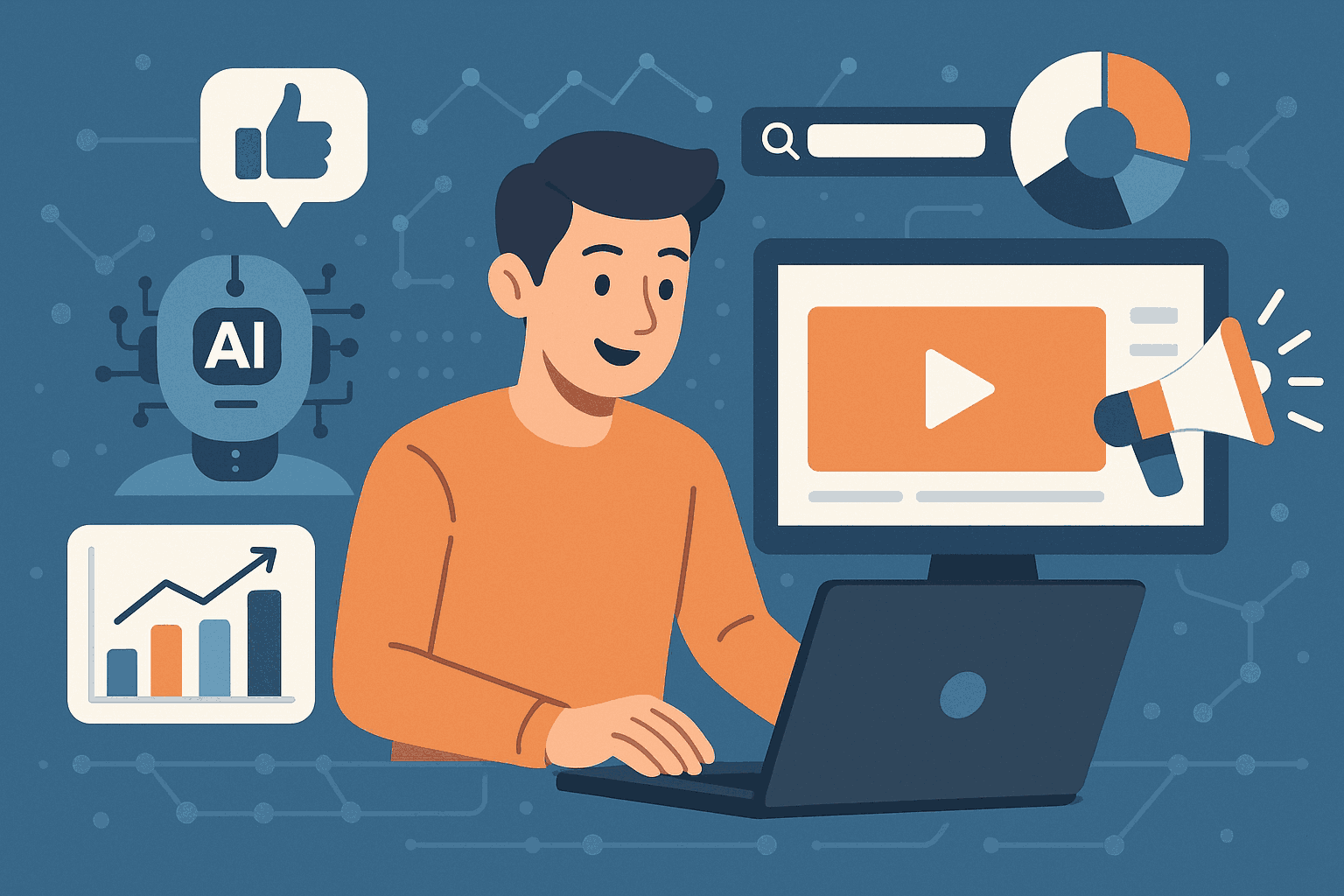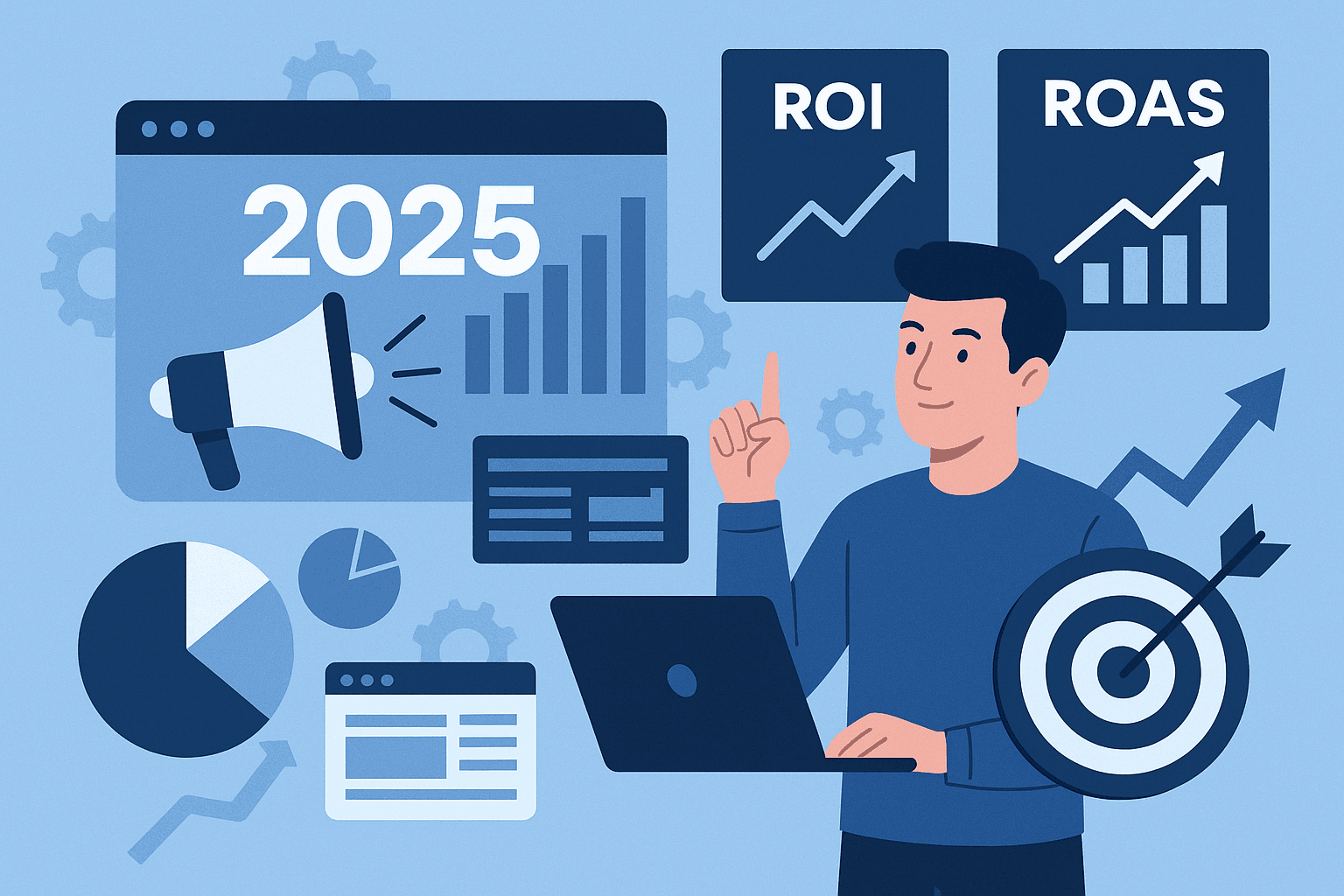The Transformative Influence of Artificial Intelligence on Digital Marketing
Artificial Intelligence (AI) has picked up uncontrolled demand in redesigning digital marketing strategies, helping businesses open customer engagement that was not possible, optimize campaigns and increase growth opportunities. By 2025, the incorporation of AI in digital marketing will not simply be a trend but a must-have for all companies who want to keep up with a fast-changing environment.
1. Hyper-Personalized Customer Experiences
Digital automation helps companies fetch and analyze heaps of shopper information which aid in the custom content delivery and product recommendation. According to this particularization level, prompting the user to interact with the company and brand loyalty is better. Otherwise, AI-driven strategies that improve suggestions of products or services to be based on a user’s surfing and choices, can be expressed by a user through conversions.
2. Advanced Data Analytics and Predictive Insights
AI has the capability to handle and interpret large datasets which leads to the marketers the ability to achieve predictive insights into what the consumer behavior will be. One of the several benefits of AI is that it can identify patterns and trends when assisting in forecasting future marketing outcomes, thus facilitating data-driven decision-making.
3. Enhanced Content Creation and Optimization
The AI-based software tools have become the cornerstones of digital content writing through activities like providing new show ideas, drafting of articles and watching content optimization for search engines. With that in mind, the entire content creation process is made much simpler, as a result of which the marketing materials can engage the target groups and have a higher-than-average ranking on search platforms.
4. Improved Customer Segmentation
AI splits up customers based on their behaviors, and then it adds to the analysis of the distinct audience categories. Through this it is possible to increase the effectiveness and targeting of marketing campaigns, making sure that the messages are reaching the most receptive audiences.
5. Intelligent Chatbots and Virtual Assistants
The integration of AI-driven chatbots into the digital marketing strategies of the company can offer prompt support and information resources for the clientele. These virtual assistants can work on a number of questions, thereby, increase customer satisfaction and also reduce the operational costs.
6. Automated Advertising Campaigns
AI modifies the management of advertising campaigns by altering bids, targeting specific demographics, and optimizing ad placements in real-time. Through this automation, a tighter leash on the marketing budget and more favorable campaign results will be possible.
7. Enhanced Email Marketing Strategies
The AI technology assists to build the emails, using open rates, click-through rates, and user engagement metrics to identify which campaigns are the most effective and most engaging. The analysis helps in improving the content of the emails and the targeting of the campaigns so that they can lead to a higher number of engagements and conversions.
8. Real-Time Decision Making
Thanks to the flow of real-time data which AI computing capabilities enable, marketers are now able to make quick decisions as they operate on the basis of the latest consumer behaviors and market trends. In fact, this adaptability is of utmost essence when it comes to the high-speed digital realm.
9. Ethical Considerations and Data Privacy
With digital marketing, Artificial Intelligence is playing a significant role with ethical and privacy issues. Marketers need to be aware of the potential ethical challenges associated with this responsibility by providing the consumers with the utmost transparent and secured environment.
10. Continuous Learning and Adaptation
AI systems are always learning and adapting to new data, which in turn, keeps the marketing strategies updated and interesting, as well as effective. Digital marketing companies are able to keep up with market trends and consumer preferences due to this continuous improvement loop.
Conclusion
AI’s integration into digital marketing is a game-changer in the way companies can reach the consumer. AI has become the backbone of marketing operations and helps marketers to make informed decisions by incorporating the use of data. AI or artificial intelligence is revolutionizing digital marketing and will play a key role in making a business successful in the future of the 21st century.




Comments are closed